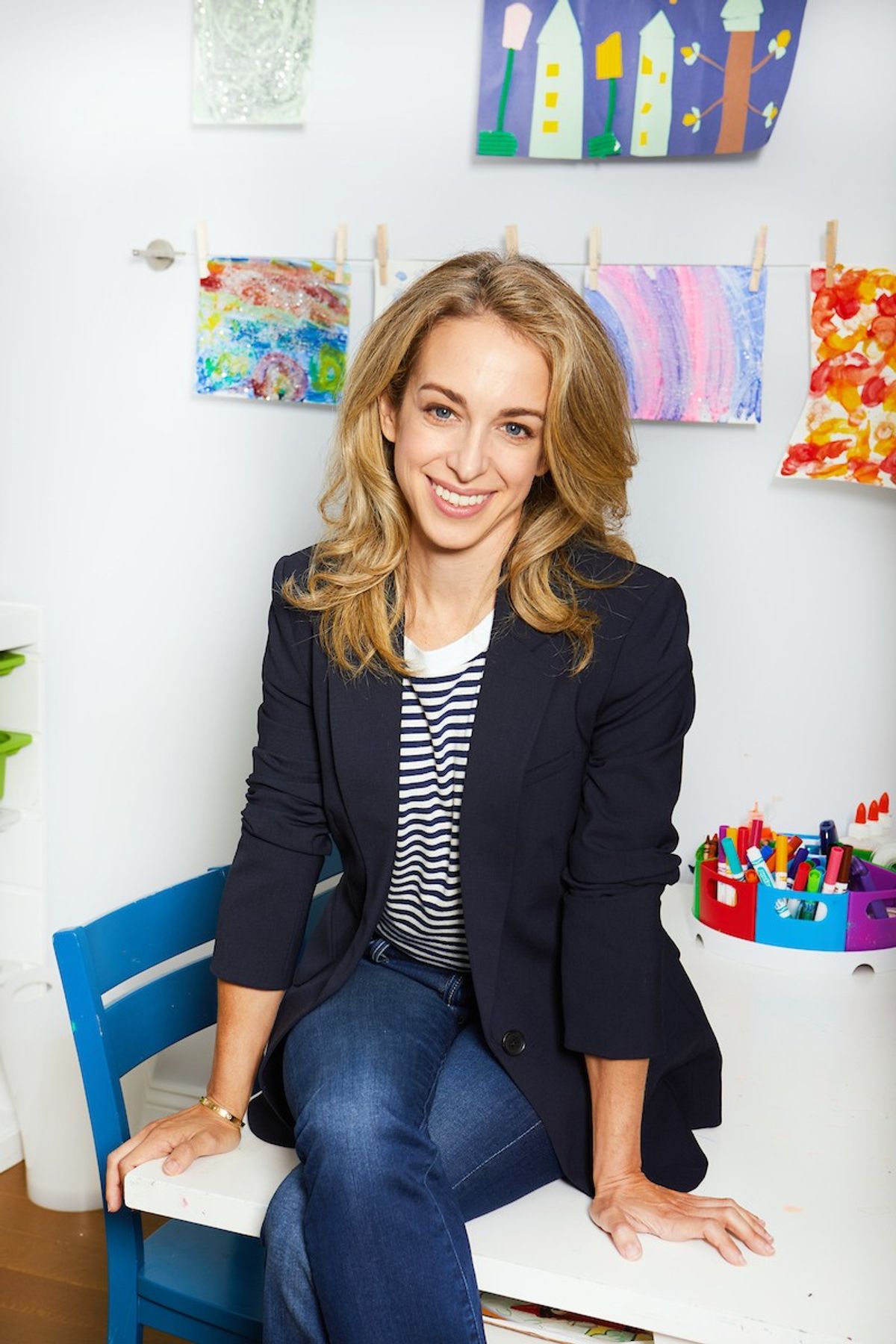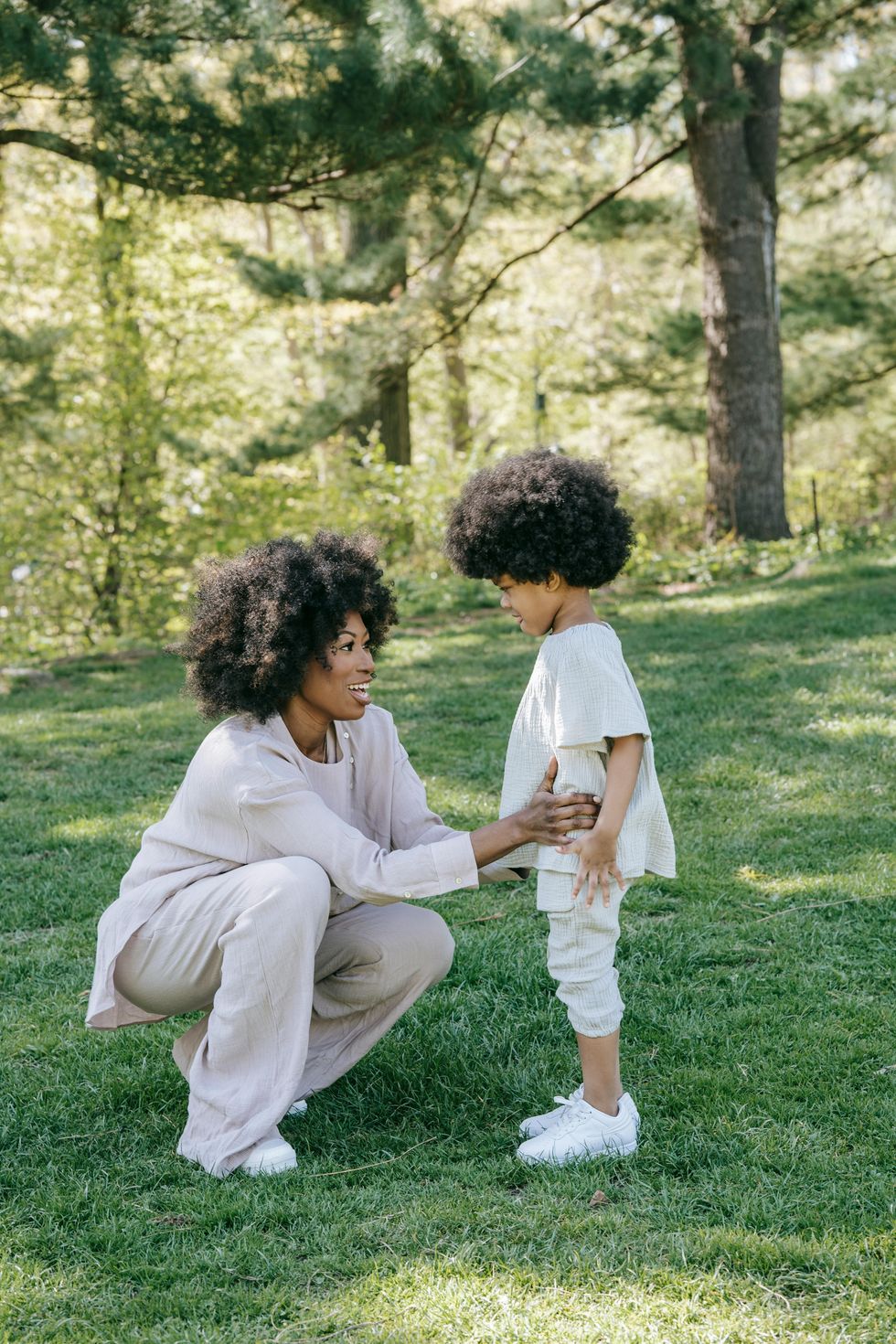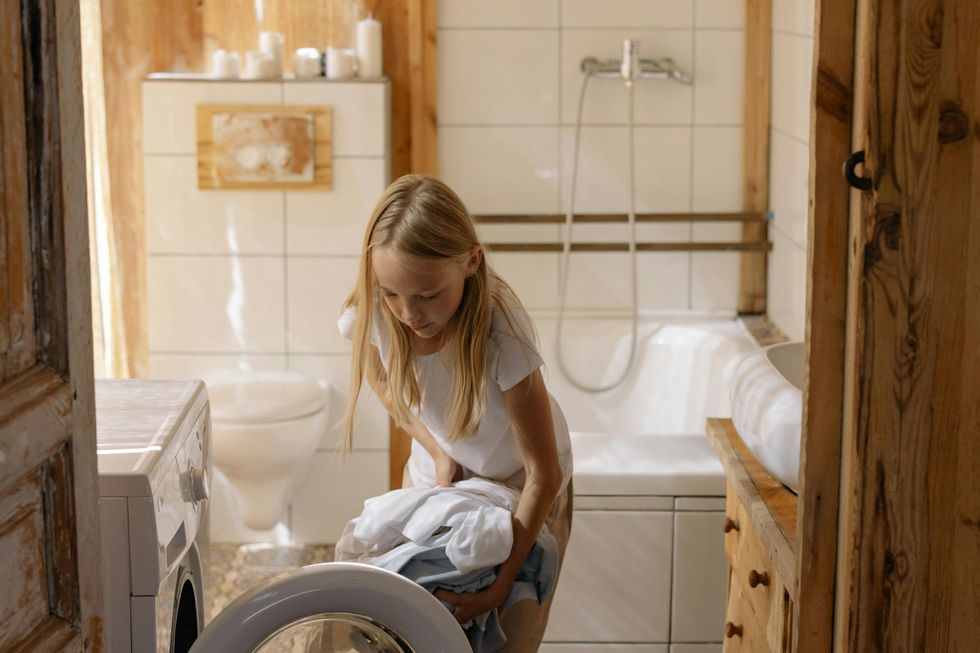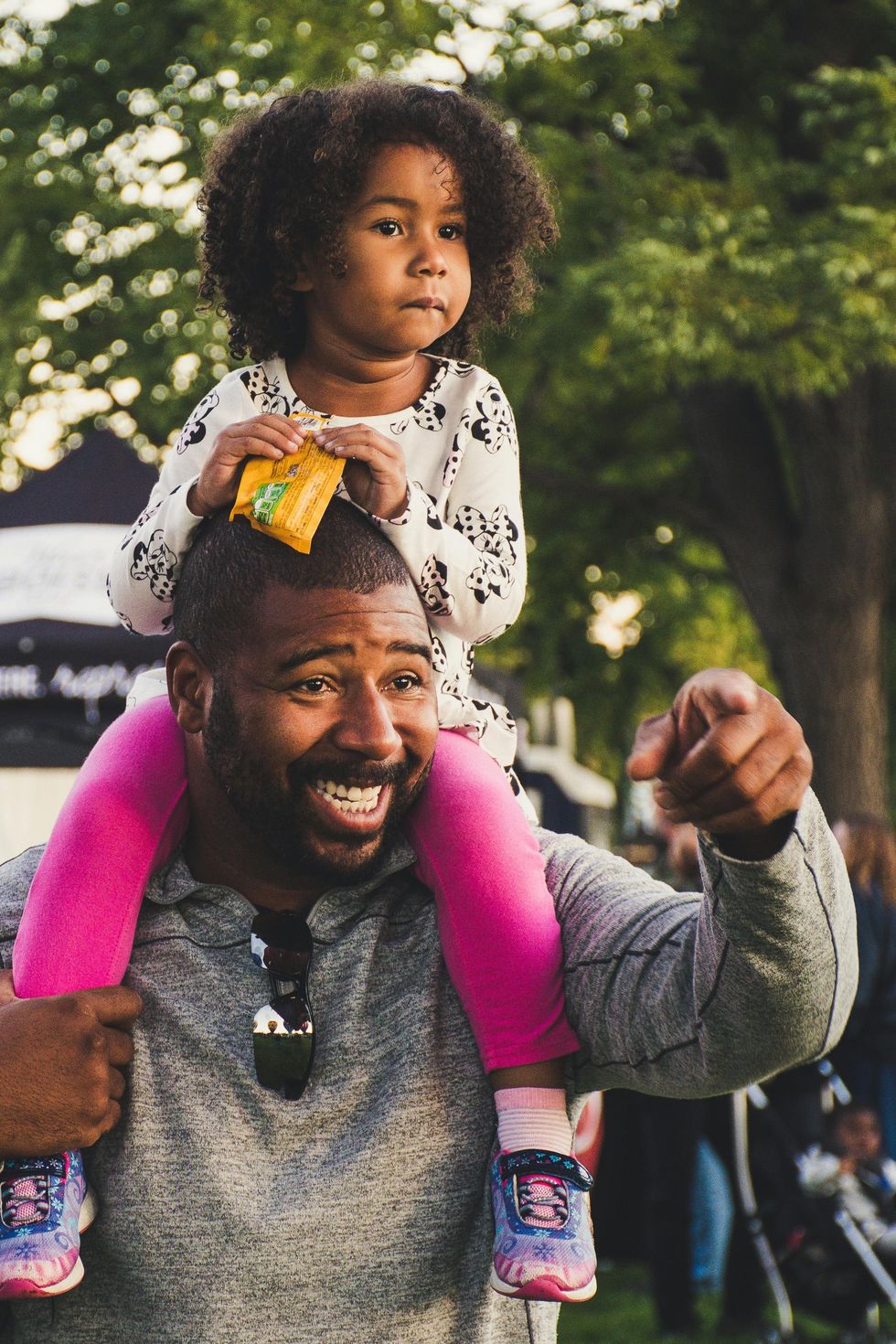6 Ways To Raise A Resilient Kid & More Powerful Parenting Advice From Expert Dr. Becky
Theresa Gonzalez is a content creator based in San Francisco and the author of Sunday Sews. She's a lover of all things design and spends most of her days raising her daughter Matilda.

If you’re a parent, you may already know Dr. Becky from her popular social posts on parenting advice or perhaps her Good Inside platform, where she helps break down big parenting topics into simple, actionable strategies you can actually use. Brit Morin, founder of Brit + Co, recently chatted with Dr. Becky in a fireside chat in Mill Valley, CA. Here are 6 takeaways from that chat that will help you parent better while raising a more resilient kid (and ultimately, better human).

Photo by Ketut Subiyanto
Help kids cope with difficult feelings: “Resilience is being able to cope with the widest range of feelings possible. And it's usually the opposite of fixing or denying,” says Dr. Becky.
Let’s say your child comes home and says he’s the only one in class who can’t read or she didn’t make the soccer team. Of course, that’s really hard for a parent to hear. “We either tell them it's not a big deal. Everyone learns to read on their own time or I know you didn't make soccer, but you're the varsity basketball captain. When we do both of those things, we actually make kids far less resilient and actually far less trusting of us.”
Instead: Rather than try to fix or deny the feeling, flip the script to something that makes them feel supported, validated, and less alone, such as 'I'm so glad you're sharing that with me. I'm so glad you're talking to me about this.'
“You're actually sending a really deep message to your kid in that moment that I know the part of you who is going through this, I still like that part. It's literally what you're saying. I still like you even when you're not a good reader," she says.

Photo by Barbara Olsen
Build self-trust with one simple action: “I believe we're inherently good inside,” says Dr. Becky. “I've always thought of control and trust as opposites. When we control someone, we're saying, ‘I don't trust you.’ Trusting your feelings is the essence of making safe decisions and tricky interpersonal situations,” says Dr. Becky.
Instead: The phrase Dr. Becky thinks is the ultimate confidence builder and wants every parent to say to their kids? 'I believe you.' "That is what builds self-trust is when kids learn, my parents believe my feelings, that must mean my feeling is real," she says.

Photo by Julia M Cameron
Think outside the problem mindset: “We should not approach anyone we're having conflict with until we get to a me-and-you-together against a problem mindset. This is so important. The other person will just get defensive,” says Dr. Becky. (This works in all relationships, from your partner to your coworkers).
Instead: Regulate your own emotions and teach your children problem-solving skills from a young age. “Help them understand that setbacks are a natural part of life and that they have the ability to overcome challenges by finding solutions.”

Photo by cottonbro studio
Foster independence: Allow your children to take on age-appropriate responsibilities and make their own decisions. This helps them develop confidence in their abilities and resilience in the face of obstacles.
“I remember I was unloading the dishwasher and I said to my oldest, 'Come help me do the silverware.' He was young enough to do it. I remember him looking at me being like, why do I have to do that?” Her response? “I kind of regulated myself. And then I said, ‘We're going to do this together.’ And he's like, why? And I said something that's become a principle of mine: ‘To be a good person, you just have to do things you don't want to do.’

Photo by Anastasia Shuraeva
Create opportunities for connection. “At the core, kids are oriented by attachment. They need attachment to us, their parents, to survive. It's literally how they get food, shelter, and water. And so kids are always paying attention to what is maximizing connection,” she says. They're looking at what is taking away that connection too. That's where sibling spats can come in. Before playing referee, manage your own emotions and get to a me-and-you-together mindset.
Instead: Find one-on-one time with your child without your phone. “It's literally the most important parenting strategy there is for any behavioral problems. That is the first intervention after understanding [the why]. They were seeking your connection the whole time. They were looking for connection, They were looking to be believed. Spending more time actually removes the aloneness in whatever your kid was struggling with, which is often the foundation for so much positive change.”

Photo by Brett Sayles
Experience the power of repair. There is no perfect parent. We all lose it sometimes and act in ways we’re not proud of. It’s ok, if you have the trust and connection, you have the power to repair. “Repair is the act of going back to a moment that didn't feel good and reconnecting.”
That could look like saying ‘Hey, I was on my phone and you were trying to talk to me and I'm sure that felt really annoying and I'm going to try not to do that.’ Or maybe it's saying, ‘Hey, I yelled at you last night and I'm sure that felt really scary and it's never your fault when I yell and I'm working on managing my feelings.’
“We think events are what impact our kid. I yelled at my kid, I messed up my kid forever. Events are not what impact a kid. It's the aloneness after the event that impacts a kid," Dr. Becky reminds us.
Watch The Full Interview For Even More Parenting Advice with Dr. Becky
Find more parenting advice on Dr. Becky's Good Inside and our Parenting page!
Theresa Gonzalez is a content creator based in San Francisco and the author of Sunday Sews. She's a lover of all things design and spends most of her days raising her daughter Matilda.



















